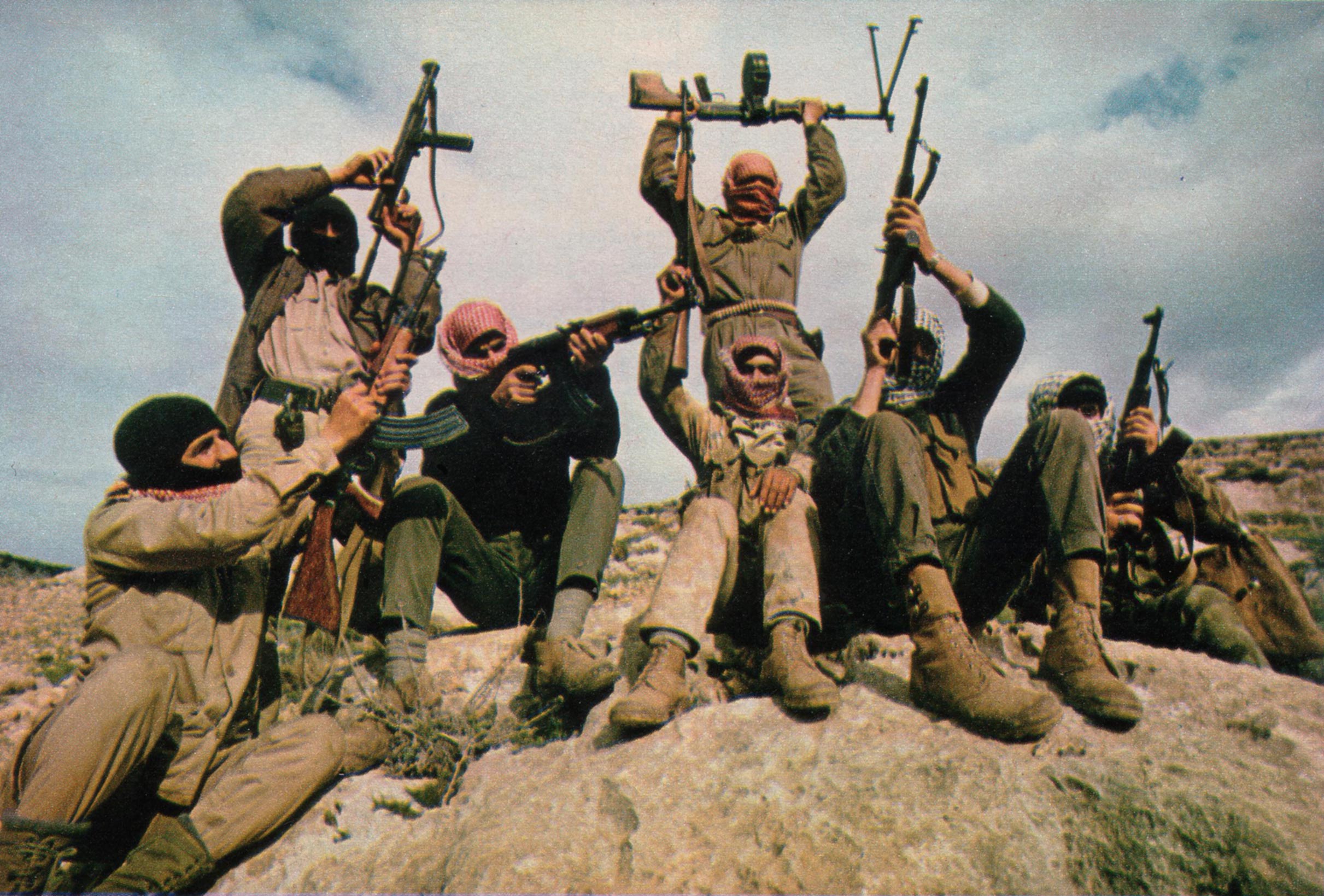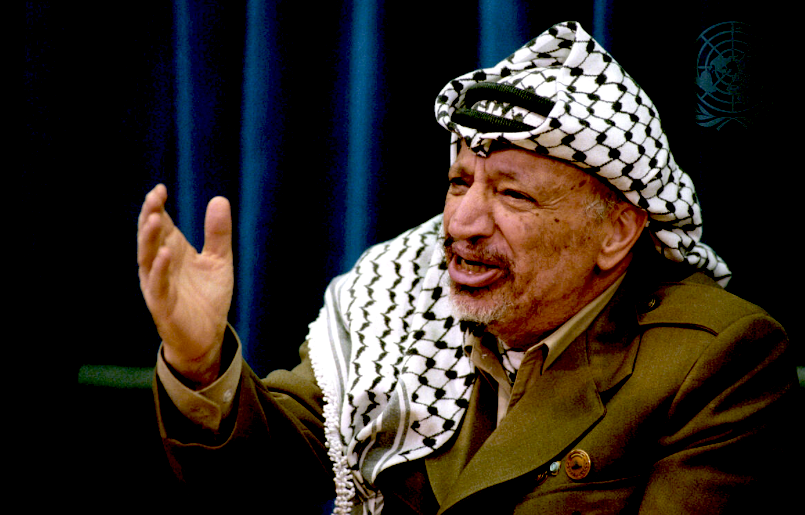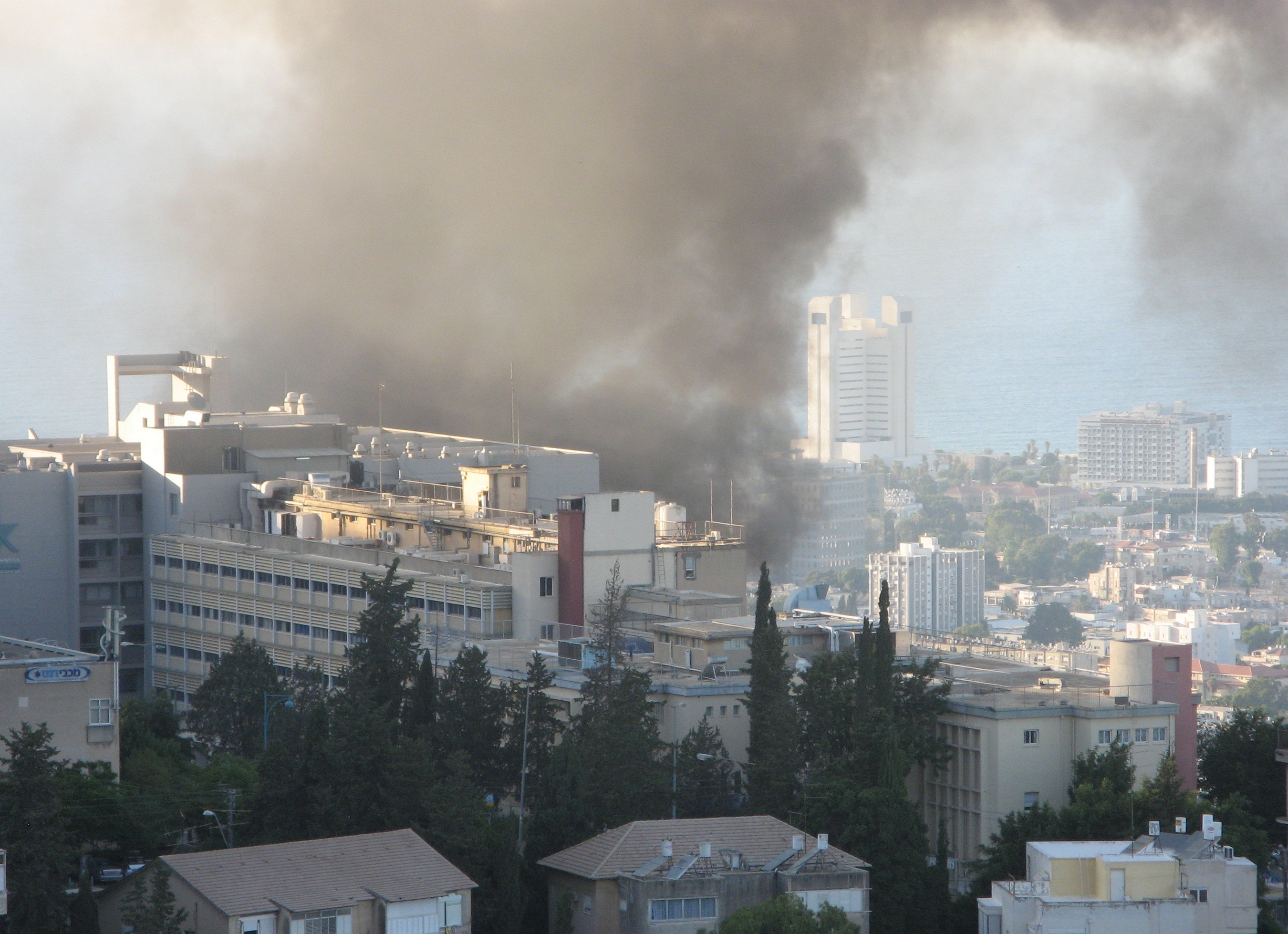Those who fought and repulsed Israel in South Lebanon in 2006 are determined to never return to the time when Israel could invade Lebanon at will, writes As`ad AbuKhalil.

Popular Front for the Liberation of Palestine patrol in Jordan, 1969. (Thomas R. Koeniges – LOOK Magazine, Wikimedia Commons)
By As`ad AbuKhalil
Special to Consortium News
 Anyone who lived through the civil war years would recognize that the current, religious-oriented Lebanese resistance movement against Israel today is radically different from the largely secular Palestinian-Lebanese resistance movement during the PLO era in Lebanon.
Anyone who lived through the civil war years would recognize that the current, religious-oriented Lebanese resistance movement against Israel today is radically different from the largely secular Palestinian-Lebanese resistance movement during the PLO era in Lebanon.
That era started with the expulsion of the Palestine Liberation Organization forces from Jordan in 1970 and their relocation to Lebanon. It ended in 1982 when the military defeat suffered by the PLO resulted in the evacuation of Palestinian military forces from Beirut and the south, and later from most of Lebanon.
During that time, the PLO and the Lebanese National Movement (the Lebanese coalition which comprised leftist and Arab nationalist political parties and organizations) never fostered an effective military resistance movement against Israel. The reasons for the failure are numerous.
Firstly, PLO leader Yasser Arafat was never serious about a military option against Israel, even though he armed his movement and established numerous training camps. His goal was, from the start, to utilize the movement’s military force as leverage in diplomatic negotiations with the U.S. Arafat’s foreign policy was largely coordinated with the Saudi regime, which constantly urged Arafat to make more and more concessions to Israel.
Secondly, there were numerous Palestinian organizations in Lebanon but there was never an attempt to put them under one unified military command. There were various bodies and commands which Arafat established to ostensibly unify the military and intelligence services of all the organizations, but those efforts were merely paper agreements. Even Arafat’s own political movement, Fath, was splintered into many factions and branches and each operated largely separately from the others. Disunity hampered the attempt to form a unified military resistance movement.
Thirdly, all Palestinian organizations preached guerrilla warfare but practiced conventional militarization of the ranks. Even the radical Popular Front for the Liberation of Palestine (PFLP) established its own military academy to produce army officers. That clashed with the original mission of the front to practice a people’s liberation war. Arafat turned his ostensibly guerrilla units into an army — or various armies to be accurate.
Secrecy Dictum Violated

Yasser Arafat, chairman of the Executive Committee of the Palestine Liberation Organization, at a U.N. press conference, May 2, 1996. (UN Photo/Evan Schneider)
Fourthly, an effective military resistance movement against Israel requires a high level of secrecy. PLO organizations violated the basic dictum of effective resistance groups. PLO organizations were flashy, ostentatious and often indulged in luxurious living at the level of top leaders.
In 1973, Israeli terrorist commandos snuck into Beirut and killed PLO leaders (and civilians, including a poet). The PLO leaders were an easy target because they lived in apartments in one of the most fashionable neighborhoods of the city. Many PLO leaders lived in well-marked apartments. Even after the PLO’s leadership relocated to Tunisia after 1982, PLO leaders lived in marked mansions though the Tunisian government had a secret relationship with Israeli intelligence.
Arafat’s second in command, Abu Jihad, was murdered there as were Abu Iyad and Abu Al-Hawl. Only Arafat lived a truly underground existence among the Fath leaders (and while Arafat allowed corruption in the movement, he always lived modestly and even ascetically). Leaders of PFLP and the Democratic Front for the Liberation of Palestine (DFLP) also lived underground and avoided staying in affluent neighborhoods where the presence of a PLO leader would stand out. Even the projection of military forces in South Lebanon did not adhere to standards of secrecy. Training camps were in fixed bases that were known to residents of the areas.
Fifthly, military operations were seasonal and politically-motivated and not part of an overall resistance, military strategy. Most Palestinian organizations would launch military operations against Israel on the anniversary of the founding of the organization. And organizations did not coordinate with others operating in the same area. When an operation was considered successful, several organizations would claim responsibility.
There were highly-trained and highly-motivated Palestinian and Lebanese fighters, but they were not properly husbanded or channeled into an organized military strategy. Operations were not always carefully planned or executed and training was not always thorough and meticulous. When an operation was timed to coincide with the founding of the organization, the emphasis became more on the date than on careful planning.
Fifthly, the PLO did not invest in the careful study of the military capabilities of the enemy. The border area was not meticulously observed as it is now — and since the 1990s. Israel often launched surprise attacks, and PLO forces were often ill-prepared. There were no military units that specialized in studying the Israeli military and Hebrew speakers were often borrowed from the Institute for Palestine Studies in Beirut (a think tank which specialized in studying Israel).
Compare that to Hizbullah which founded its own Hebrew school in order to allow its military cadres to follow closely Israeli military and political developments (and knowledge of Hebrew proved useful when Hizbullah intercepted communications by the enemy). None of that was available at the time of the PLO.

Smoke over Haifa, Israel, after a rocket launched by Hezbollah hit the city; Aug. 12, 2006. (Tomer Gabel, CC BY-SA 2.0, Wikimedia Commons)
Sixthly, the leadership was different. Arafat was not someone who presented a coherent vision of war with the enemy. Even the sincere and ascetic George Habash, did not present a coherent vision of war or resistance. Instead, his speeches contained powerful emotional and polemical encouragement for more resilience and steadfastness, while Arafat switched from bravado to bombast. Compared to Hizbullah leader Hassan Nasrallah, PLO leaders did not carefully project an image to the enemy or engage in psychological warfare. It was all improvised.
Seventhly, corruption in PLO ranks was the norm. The commitment of salaried fighters was weak, creating a state of political and military lethargy that extended to all other PLO organizations that profited from the largesse of Arafat and the Libyan and Iraqi regimes, which funded various PLO organizations.
Lebanese Army Assault
In the early 1970s, people had to sacrifice to join the Palestinian revolution. There wasn’t an abundance of money and the repression against the PLO was severe in Lebanon, as it was in Jordan until Black September. In 1973, the Lebanese Army used fighter jets in its war against the Palestinians (most likely with the full cooperation and support of the U.S. and Israel), but the bravery of the Palestinian fighters turned away the Lebanese Army assault.
After the outbreak of the Lebanese civil war in 1975, the PLO movement became awash in money: Gulf countries wanted to push it in a reactionary direction, while Iraq and Libya tried to push it in a more radical direction. Tens of thousands of Palestinian and Lebanese fighters were full-time employees. There was little indoctrination and not much work to do. Thousands were spread out in military bases without any plan of defense or of attack.
Israel today knows full well it faces a new resistance movement in South Lebanon. It is nothing like what Israel faced before 1982. There is a resistance museum in South Lebanon (in Mlita) in which visitors can see for themselves the extent to which Israel has been humiliated on the battlefield in Lebanon. Members of the new movement are more committed and better trained and focused than fighters of past years.
More importantly, resistance to Israel today operates according to a meticulous plan where nothing is left to chance. There are careful plans for military confrontations (in defense and offense) and each plan contains a component of psychological warfare. The present-day movement is known for its secrecy and operates its own communication network to prevent Israel from tapping into its lines.
Those who fought and repulsed Israel in South Lebanon in 2006 are determined to never return to the time when Israel could invade Lebanon at will. All the propaganda about terrorism (orchestrated by Gulf, Israel and Western governments) is the product of Israeli frustrations that Arab military resistance (in Lebanon and Gaza) is the most potent it has ever been since 1948. Israel is used to occupying and massacring with no concern for the enemy. Those days are long gone.
As`ad AbuKhalil is a Lebanese-American professor of political science at California State University, Stanislaus. He is the author of the Historical Dictionary of Lebanon (1998), Bin Laden, Islam and America’s New War on Terrorism (2002) and The Battle for Saudi Arabia (2004). He tweets as @asadabukhalil
The views expressed are solely those of the author and may or may not reflect those of Consortium News.

I guess it’s time to find out what the words to” Do unto others…” really means to all concerned.